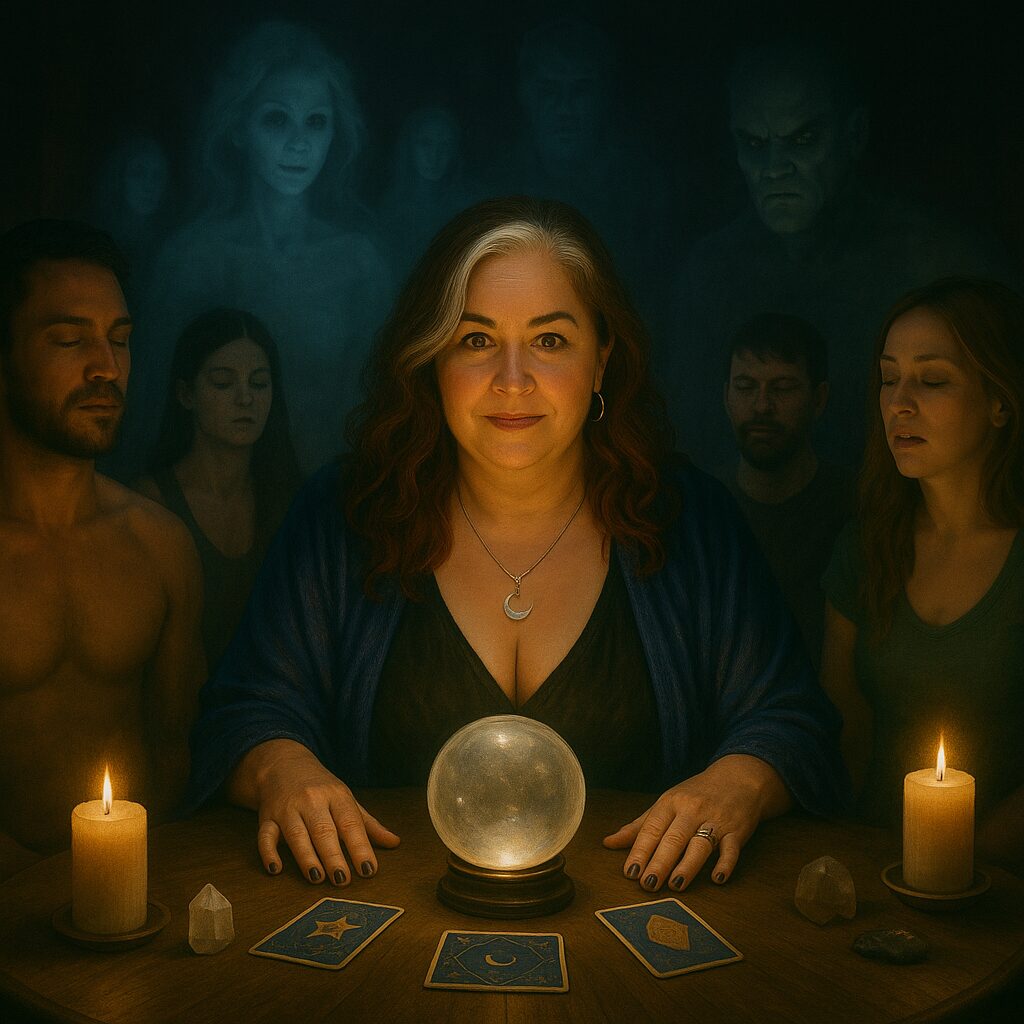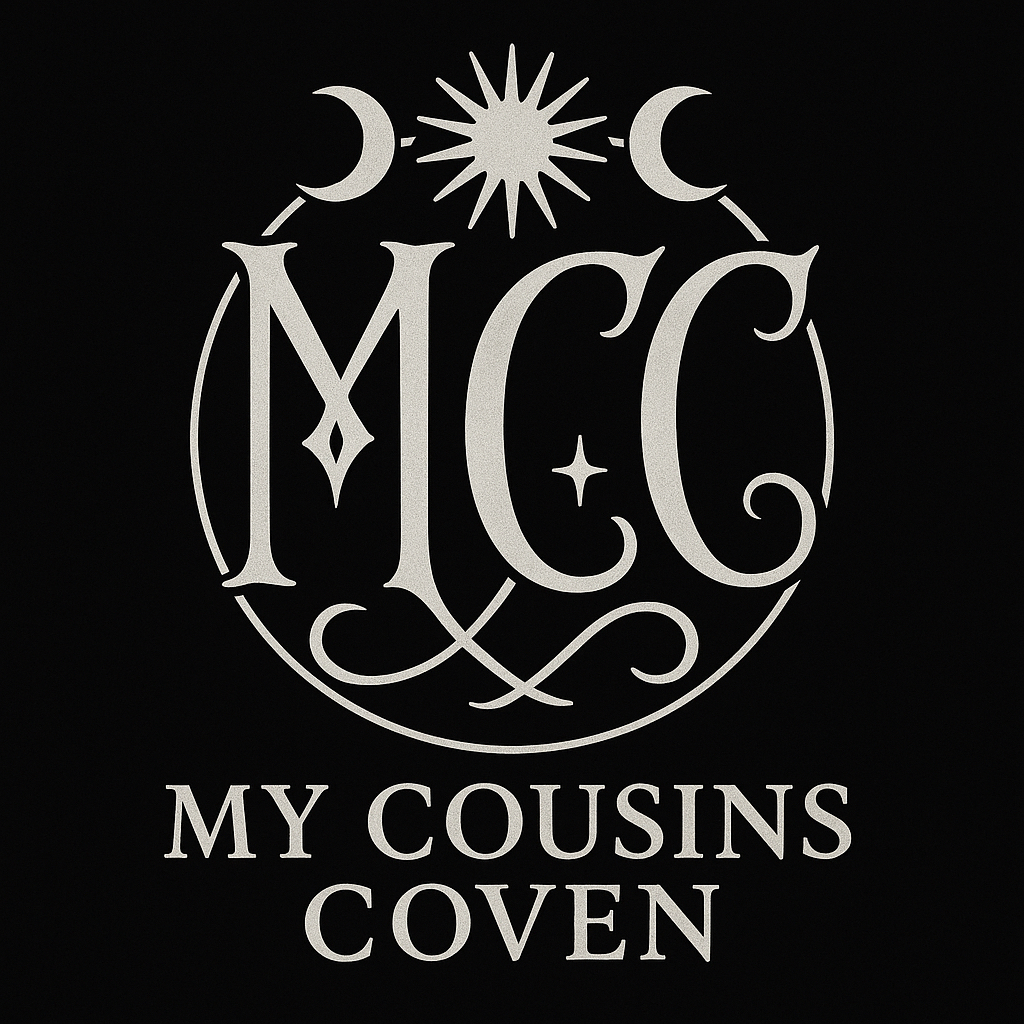Mediumship / Spirit Channeling
Mediumship — sometimes called spirit channeling — is the art of perceiving, hearing, and sometimes voicing the presence of spirits. These may be the dead, spiritual presences, guides, or less familiar entities who move along the edge of human awareness. A medium tunes themselves to subtle signals: a shift in air pressure, an image that seems to arrive unbidden, a phrase whispered in the inner ear. Through sensitivity and discipline, those impressions can be shaped into communication.
The experience of mediumship often expresses itself through the “clairs” — clairvoyance (clear sight, through visions and symbols), clairaudience (clear hearing of voices or tones), clairsentience (clear feeling of another’s presence or emotions), and claircognizance (clear knowing, sudden understanding that cannot be traced to thought). Some mediums find one channel dominant, while others shift among them as conditions demand. For a few, this gift is lifelong and ever-present, like a door that never closes. For most, it emerges through training and careful practice, supported by protections and grounding techniques.
At the Coven of the Veiled Moon, mediumship is valued as a powerful current, but never mistaken for the entirety of the craft. We regard the act as additive to ritual rather than central — a voice in the circle, not the circle itself. We work with a trained medium whose presence enriches ancestral rites, hauntings, and times when closure or guidance is sought. Messages that arrive through them are treated as offerings, not decrees. They are weighed against divination, omen-reading, and the shared intuition of the coven. In this way, mediumship informs, but does not dictate.
Not all mediums work alike. Some dedicate themselves to gentle contact with ancestors or guides and prefer not to open to darker presences; others accept the burden of more dangerous crossings, assisting with hauntings, spirit release, or disruptive energies. The choice depends on sensitivity, temperament, and will. This work can be draining — physically, emotionally, and spiritually — and it requires both strong boundaries and a willingness to say no. The best mediums honor their own limits as much as the spirits they engage.
The world knows both credible mediums and charlatans. A trustworthy medium does not pressure, force, or create dependency. They respect consent, allow silence when spirits do not answer, and understand that the dead and unseen are not endlessly at human command. By contrast, those who promise constant access, demand money for “removing curses,” or manipulate through fear are to be avoided. Discernment is as necessary when choosing a medium as when listening to the spirits themselves.
Examples
- Inviting an ancestor through a designated medium during Samhain to counsel the coven in the turning of the year.
- Working with a medium alongside tarot or runes, blending channeled impressions with divinatory structure.
- Calling on a medium to aid a house-clearing, listening to the unrest of lingering spirits and guiding them onward with ritual support.
- Receiving a warning from a spirit guide channeled mid-ritual, followed by cleansing and protective wards.
Note: Mediumship is potent but not without risk. It must always be shielded, grounded, and practiced with clear consent. Inexperienced mediums may attract opportunistic or misleading entities, and even experienced ones may be strained by what comes through. When paired with evocation or summoning, the medium can become the most vulnerable link, as the spirit’s presence presses more directly upon them — sometimes to the point of harm. At the Coven of the Veiled Moon, we teach that spirit contact is sacred work, but it is also serious work: the medium is never a toy, and the dead are never a spectacle. Mediumship can illuminate and guide, but only when practiced with respect, humility, and careful boundaries.ith respect and protective measures. Mediumship can stir intense emotional or energetic responses, so grounding, shielding, and clear consent from all present are essential.

